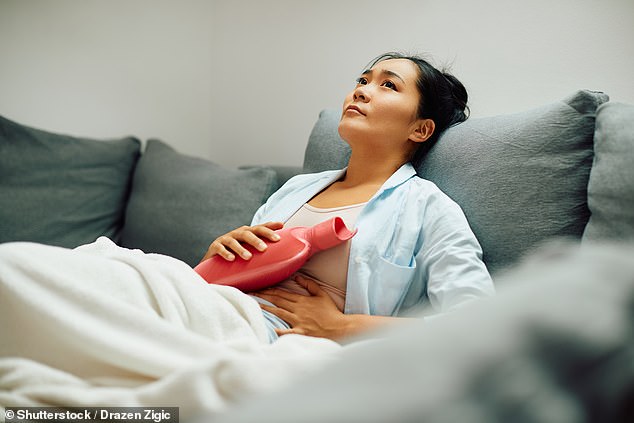Pain-relieving endometriosis treatment will NOT be rolled out by the NHS despite approval last week
A treatment for endometriosis will not be rolled out on the NHS despite being approved for use in the UK last week.
The new pill, a combination of the drugs relugolix, estradiol and norethisterone acetate, appears to dramatically reduce the painful symptoms of the disease.
Endometriosis occurs when the lining of the womb grows outside the womb itself. In the UK, endometriosis affects one in ten women.
Patients in the UK have to wait an average of more than eight years from the onset of symptoms before receiving a diagnosis.
The new daily tablet lowers the levels of the female sex hormones estrogen and progesterone.
Endometriosis occurs when the lining of the womb grows outside the womb itself and affects one in ten women in the UK (stock image)
A 2022 study published in The Lancet found that 75 percent of women who took the new combination reported less pain.
However, earlier this year, the NHS spending regulator, the National Institute for Health and Care Excellence (NICE), said it would not offer the care to the 78,000 women in the UK who have endometriosis.
It was stated that there is no evidence that the drug combination is more effective than existing treatments.
Currently, patients with endometriosis are usually given anti-inflammatory drugs or the contraceptive pill, which suppresses progesterone.
Sometimes surgery is performed to remove pieces of endometriosis tissue.
After medical safety regulators concluded last week that the combination is safe, it will now be available privately.

Currently, patients with endometriosis are typically given anti-inflammatory drugs or the contraceptive pill, which suppresses progesterone (stock image)
A month’s supply is expected to cost around £75.
Experts have called on NICE to fund the new treatment, claiming thousands of women are not responding to current treatments.
“With limited treatments available in the UK, combination therapy with relugolix could help people manage their endometriosis pain,” said Professor Andrew Horne, an expert in reproductive health at the University of Edinburgh.
‘The intense pain associated with endometriosis can be crippling and have a devastating impact on a person’s life, from their work to intimate relationships and mental health.’
NICE is expected to make a final decision on funding for the new treatment in 2025.
